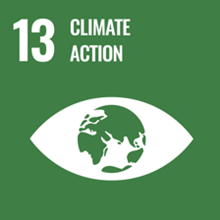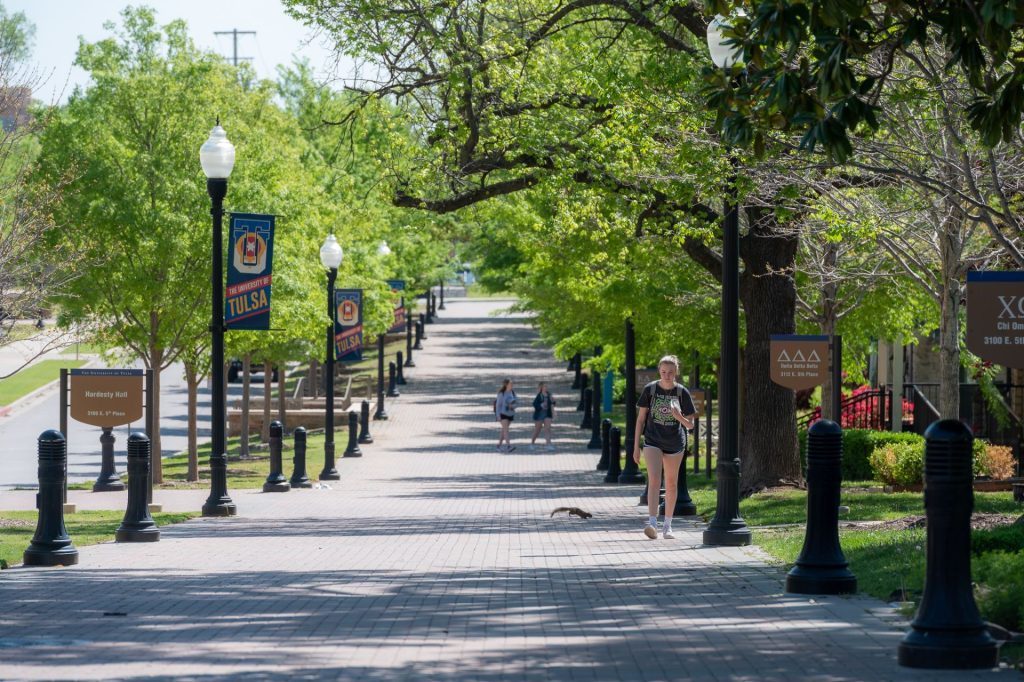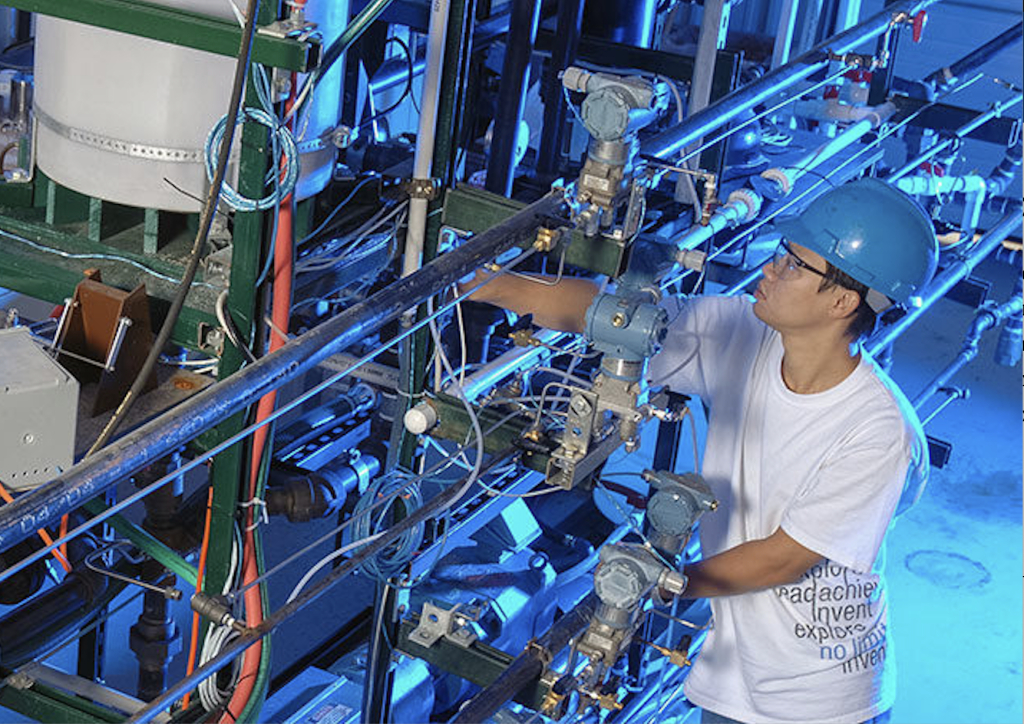
Combat climate change, mitigate its impacts, and build resilience to the effects of a changing climate
This goal emphasizes the critical importance of addressing climate change as a fundamental global challenge. Achieving this goal is essential for safeguarding the planet, protecting vulnerable communities, and ensuring a sustainable future for current and future generations. Climate action is not only a moral imperative but also a pathway to achieving many other sustainable development goals, as climate change has far-reaching impacts on issues such as poverty, health, food security, and economic stability.
The University of Tulsa aims to contribute to Sustainable Development Goal 13 in several ways:
- Sustainability Initiatives: Implement sustainability initiatives on campus to reduce the university’s carbon footprint. This can include energy efficiency projects, renewable energy, and waste reduction programs.
- Green Campus Practices: Adopt sustainable practices in campus operations, such as reducing energy and water consumption, promoting recycling and composting, and minimizing greenhouse gas emissions.
- Climate Education and Research: Offer academic programs, courses, and research opportunities related to climate change, environmental science, and sustainable technologies to educate and empower students to address climate issues.


- Sustainable Transportation: Promote sustainable transportation options for students and staff, such as biking, walking, carpooling, and public transportation, to reduce emissions associated with commuting.
- Student-Led Initiatives: Support student-led climate action initiatives, clubs, and organizations that promote climate awareness and sustainability practices on campus and in the broader community.
- Advocacy and Partnerships: Advocate for climate action and collaborate with local, state, and national governments, as well as industry partners, to support policies and practices that mitigate climate change.
- Carbon Offsetting: Explore carbon offset programs or invest in local environmental projects to balance the university’s carbon emissions.
- Public Engagement: Engage with the local community to raise awareness about climate change issues and collaborate on climate-related projects and initiatives.
- Green Building Design: Incorporate sustainable and energy-efficient building design principles in new construction and renovation projects on campus.
By taking these actions, TU contributes to SDG 13 by reducing its carbon footprint, raising awareness about climate change, and preparing students to be informed and active participants in addressing climate-related challenges. Additionally, TU’s efforts can serve as a model for sustainable practices that can be adopted by other educational institutions and communities, contributing to broader climate action initiatives

SDG 13 Targets
Inform and support local or regional government on issues associated with climate change
Offer educational programs or campaigns on climate change
Develop and share university climate action plan with local government and community groups
Research
20+
Total Scholars
168
Total Publications
News
- Stuart Price (J.D. ’82) moved to Tulsa in the late 1970s to attend The University of Tulsa’s College of Law, discovering after graduation that his calling was actually as an […]
- Dear UTulsa community, As we begin a vibrant fall semester, I am pleased to share several pieces of good news about the department’s faculty. Associate Professor Laura Ford has been […]
- UTulsa is researching blending hydrogen into natural gas pipelines to reduce carbon emissions by replacing a portion of the methane in the gas with hydrogen, which produces no carbon dioxide […]
- At The University of Tulsa, innovation is taking a step forward with the development of an advanced solar energy conversion system that combines two cutting-edge technologies: concentrated solar power (CSP) […]
- University of Tulsa mechanical engineering alumnus Tim Latimer (BS ’12) was dealing with drilling equipment that kept breaking from the high temperatures deep underground. “I had never even heard of […]
- Growing up in New Mexico where her family operates an oil and gas business, Ileana Braddock was surrounded by people whose livelihoods were impacted by the booms and busts of […]
- This opinion column was written by Andrew Morin and was first published in the Tulsa World. Morin is a research assistant professor in the School of Cyber Studies at The […]
- Eleven students from The University of Tulsa are participating in the Future Green Energy Leaders Summer Program hosted by China University of Petroleum, Beijing (CUPB). This is the first time […]
- The University of Tulsa’s (UTulsa) Mohan Kelkar, Ph.D., Chair of Petroleum Engineering, recently traveled to the Bahrain Centre for Strategic, International and Energy Studies to speak on energy transition. The […]
- The renewable energy sector is experiencing remarkable growth, with solar and wind power at the forefront. Helping to ensure these technologies can achieve their maximum potential is Assistant Professor of […]